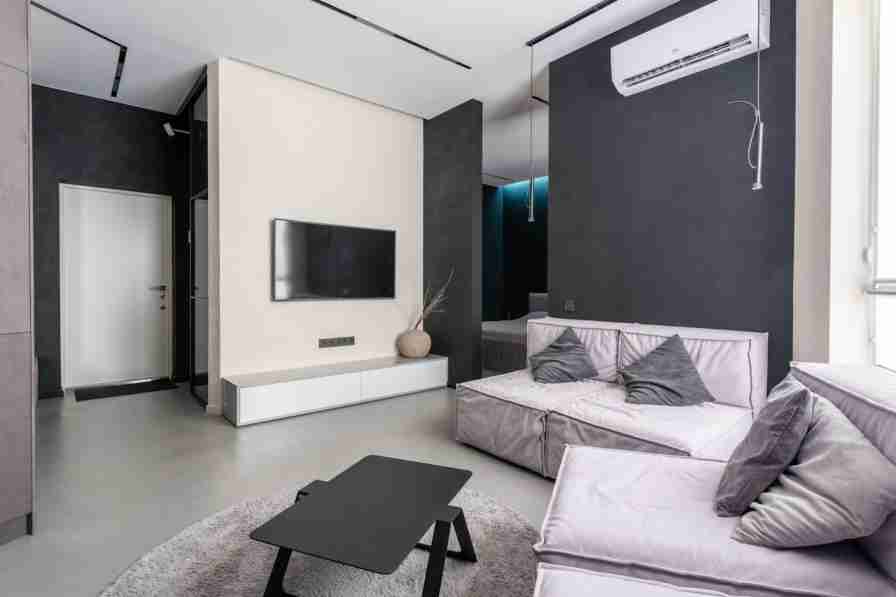
Table of Contents
Introduction
Installing a new air conditioner in your home is a substantial investment that can enhance your living environment and boost property value, especially during scorching summer months. To ensure a seamless installation and optimal performance of your AC unit, several crucial steps need to be considered. This guide will walk you through these preparatory steps, guaranteeing a hassle-free air conditioning installation.
Evaluate Your Cooling Needs
The initial step to achieving a successful air conditioner repair in Lehi is to precisely evaluate your cooling requirements.
- Size of Your Home: The size and layout of your home will determine the capacity of the AC unit you need. An air conditioner that is too small will struggle to cool your home efficiently, while one that is too large can lead to excessive humidity and energy waste.
- Insulation Quality: Check the insulation of your home. Good insulation reduces the cooling load, allowing your new air conditioner to work more efficiently.
Choose the Right Type of Air Conditioner
There are various types of air conditioning systems available, and choosing the right one depends on your specific needs and the structure of your home.
- Meta Description: Get ready for your new AC installation with tips on evaluating needs, choosing systems, and ensuring smooth setup.
- Steps to Take Before Installing a New Air Conditioner
- Installing a new air conditioner in your home is a substantial investment that can enhance your living environment and boost property value, especially during scorching summer months. To ensure a seamless installation and optimal performance of your AC unit, several crucial steps need to be considered. This guide will walk you through these preparatory steps, guaranteeing a hassle-free air conditioning installation.
- Evaluate Your Cooling Needs
- The initial step to achieving a successful air conditioner repair in Lehi is to precisely evaluate your cooling requirements.
- Size of Your Home: The size and layout of your home will determine the capacity of the AC unit you need. An air conditioner that is too small will struggle to cool your home efficiently, while one that is too large can lead to excessive humidity and energy waste.
- Insulation Quality: Check the insulation of your home. Good insulation reduces the cooling load, allowing your new air conditioner to work more efficiently.
- Choose the Right Type of Air Conditioner
- There are various types of air conditioning systems available, and choosing the right one depends on your specific needs and the structure of your home.
- Central Air Conditioning: Ideal for cooling multiple rooms or the entire house. It requires a network of ducts to distribute the air.
- Ductless Mini-Split Systems: Perfect for homes without ductwork. These are also great for adding air conditioning to new additions or specific rooms without cooling the entire house.
- Portable or Window Units: Suitable for small spaces or single rooms.
- Find a Reputable HVAC Contractor
- Selecting the right HVAC contractor is crucial for ensuring that your air conditioning system is installed correctly and efficiently.
- Certification and Experience: Look for contractors who are certified and have extensive experience with air conditioning installation.
- References and Reviews: Check online reviews or ask for references to gauge the reliability and quality of the contractor’s work.
- Prepare Your Home for Installation
- Preparing your home for the installation can prevent any delays or complications during the installation process.
- Clear the Area: Ensure that the area where the AC unit will be installed is clear of any furniture or obstacles.
- Check Electrical Connections: Ensure that your home’s electrical system can handle the new air conditioner. An HVAC technician can assess this during the initial consultation.
- Understand the Costs and Financing Options
- Understanding all costs involved, including potential hidden fees, is important for budgeting the installation.
- Initial Costs: Include the price of the air conditioner and installation fees.
- Energy Efficiency: Consider investing in a high-efficiency air conditioner. Although the upfront cost might be higher, the long-term savings on energy bills can be significant.
- Schedule a Pre-Installation Inspection
- A pre-installation inspection by your HVAC contractor can identify any potential issues that might affect the new system’s efficiency or installation process.
- Ductwork Inspection: This is crucial for central air conditioning systems. Any leaks or poor insulation in the ductwork can significantly reduce the efficiency of the new system.
- Legal Compliance and Warranties
- Make sure your installation adheres to local codes and regulations.
- Permits: Some installations might require permits. A professional HVAC contractor can typically handle the permit process.
- Warranties: Understand the warranty of your new air conditioner and the installation service. Ensure these warranties protect your investment and provide peace of mind.
- Conclusion
- Taking the following steps before installing a new air conditioner can ensure your investment is wise, your home is ready, and the installation process is seamless. Begin by assessing your home’s insulation and sealing any drafts to maximize efficiency. Also, consider the size and placement of the unit to prevent overloading your electrical system. This proactive approach will not only enhance your comfort but also ensure your new air conditioning system operates at peak efficiency for years, reducing long-term energy costs and maintenance requirements.
- . It requires a network of ducts to distribute the air.
- Ductless Mini-Split Systems: Perfect for homes without ductwork. These are also great for adding air conditioning to new additions or specific rooms without cooling the entire house.
- Portable or Window Units: Suitable for small spaces or single rooms.
Find a Reputable HVAC Contractor
Selecting the right HVAC contractor is crucial for ensuring that your air conditioning system is installed correctly and efficiently.
- Certification and Experience: Look for contractors who are certified and have extensive experience with air conditioning installation.
- References and Reviews: Check online reviews or ask for references to gauge the reliability and quality of the contractor’s work.
Prepare Your Home for Installation
Preparing your home for the installation can prevent any delays or complications during the installation process.
- Clear the Area: Ensure that the area where the AC unit will be installed is clear of any furniture or obstacles.
- Check Electrical Connections: Ensure that your home’s electrical system can handle the new air conditioner. An HVAC technician can assess this during the initial consultation.
Understand the Costs and Financing Options
Understanding all costs involved, including potential hidden fees, is important for budgeting the installation.
- Initial Costs: Include the price of the air conditioner and installation fees.
- Energy Efficiency: Consider investing in a high-efficiency air conditioner. Although the upfront cost might be higher, the long-term savings on energy bills can be significant.
Schedule a Pre-Installation Inspection
A pre-installation inspection by your HVAC contractor can identify any potential issues that might affect the new system’s efficiency or installation process.
- Ductwork Inspection: This is crucial for central air conditioning systems. Any leaks or poor insulation in the ductwork can significantly reduce the efficiency of the new system.
Legal Compliance and Warranties
Make sure your installation adheres to local codes and regulations.
- Permits: Some installations might require permits. A professional HVAC contractor can typically handle the permit process.
- Warranties: Understand the warranty of your new air conditioner and the installation service. Ensure these warranties protect your investment and provide peace of mind.
Conclusion
Taking the following steps before installing a new air conditioner can ensure your investment is wise, your home is ready, and the installation process is seamless. Begin by assessing your home’s insulation and sealing any drafts to maximize efficiency. Also, consider the size and placement of the unit to prevent overloading your electrical system. This proactive approach will not only enhance your comfort but also ensure your new air conditioning system operates at peak efficiency for years, reducing long-term energy costs and maintenance requirements.
You can read our latest post

